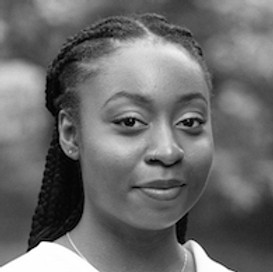
Theressa Ewa
PhD Student.
Theressa Ewa is a third-year NIH-Oxford/Cambridge PhD scholar in the labs of Dr. Daniel Muñoz-Espín at the Early Cancer Institute (ECI) at University of Cambridge and Dr. Xin Wei Wang at the National Cancer Institute (NCI) of the National Institutes of Health. Her research focuses on the pan-serological profiling of liver and lung cancers in African Americans and European Americans. She employs advanced phage-immunoprecipitation techniques, machine learning, and epidemiological frameworks to investigate cancer-related health disparities. Theressa graduated magna cum laude with highest distinction from the University of Illinois at Chicago (UIC) with a degree in Biochemistry. Her honors capstone was completed in the lab of Dr. Henar Cuervo-Grajal in the Department of Physiology and Biophysics at UIC, which investigated the function and role of Tbx2 in pericytes as it relates to Diabetic retinopathy.
After completing her undergraduate degree in 2020 from UIC, Theressa was awarded the NIH Intramural Research Trainee Award to work as a post-baccalaureate fellow at the NCI. Under the supervision of Dr. Christine Alewine, she utilized genetically modified mouse models and cell lines to study the expression of mesothelin in pancreatic ductal adenocarcinoma. Throughout her academic career, she has co-authored a few publications, presented at national and international conferences, and earned notable awards, including the NIH Graduate Student Research Award and the Center for Cancer Research Fellows and Young Investigators Award.
